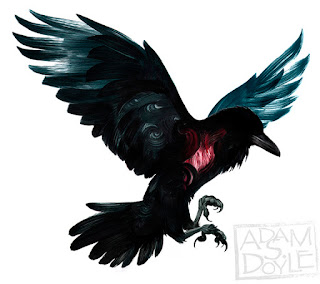 Life could not get worse for Bobby. Not only was she forced to attend a class skiing trip with a class that hates her, a twist of fate leaves her sequestered in the school bus with the class bad boy, Smitty. So, cue the teenage hormones and romance or the blood, guts, gore, maggots, carrot men, explosions, and . . . zombies? Joined by the pasty-faced albino nerd (Pete) and the head cheerleader (Alice aka Malice), the teenagers face down horrors such as surveillance cameras, vegetable juice, shrink-wrapped sandwiches, and the undead armed with ski equipment and their own ingenuity. The only thing that would have been worse was if they'd gotten off the bus in the first place . .
Life could not get worse for Bobby. Not only was she forced to attend a class skiing trip with a class that hates her, a twist of fate leaves her sequestered in the school bus with the class bad boy, Smitty. So, cue the teenage hormones and romance or the blood, guts, gore, maggots, carrot men, explosions, and . . . zombies? Joined by the pasty-faced albino nerd (Pete) and the head cheerleader (Alice aka Malice), the teenagers face down horrors such as surveillance cameras, vegetable juice, shrink-wrapped sandwiches, and the undead armed with ski equipment and their own ingenuity. The only thing that would have been worse was if they'd gotten off the bus in the first place . . .
I say that this is better than "Rot and Ruin" any day. No, I never did a review of "Rot and Ruin" though, yes, it is generally considered the best zombie book out there--every other zombie book gets compared to it. And, yes, Tom Imura might possibly be the most sympathetic zombie-hunter out there, but halfway through "Dust and Decay," the second book, I fell asleep. So, obviously, Tom Imura, his bratty little brother, that--girl-who-wants-revenge-but-was-basically-brought-along-for-kicks, the-kid-who-didn't-want-to-be-there-and-kept-getting-into-trouble, and the girl who was mysterious-and-oh-so-hot couldn't hold my interest for all that long. (Oh, and I might have given away the whole plot line for the first two books. Sorry.)
Smitty, on the other hand, is very interesting. Possibly that could be because he is insane, unlike the Imuras who are reasonable and posses the power of forethought 50% of the time. I highly doubt that Tom Imura would chop a zombie's head off with a snowboard.
Anyway, and now I'll stop with the "Rot and Ruin" references, this book is my sort of book. Plenty of guts and gore without the prominent and exaggerated battle scene towards the end, because the battle is all through out the book. Also, there is plenty of inanity. The whole plot is insane. The characters are insane. The whole thing's fantastic.
I did know what was causing people to rise again before the characters did, but that didn't ruin the plot too much. I also figured out who was behind the whole thing, because it was a bit typical, but it didn't ruin any of the fun. The last paragraph, though, has a twist that annoys me so much . . . My teeth clench up just thinking about it. Why do people do such things to me!?!
My favorite character is Bobby. At first, you get the sense that she's a reasonable heroine, the type you usually get. Yes, she is a reasonable heroine, I do agree with that, but her reasonable isn't what most people would consider reasonable. The things that seem practical to her wouldn't necessarily seem practical to me, or most normal people, in the same situation. She isn't like a lot of modern-day heroines, though, becoming despondent when something isn't working out her way (Miss Everdeen? No, we weren't just talking about you, were we?). There is almost no one else I would rather be stuck in a truck stop with during the zombie apocalypse.
Her supporting cast is also amazing. Smitty, as I've already mentioned. A bad-boy to rival Ronan Lynch, (though Ronan would come out on top because Ronan's amazing). Pete is an amazing nerd. I classify myself among their number, and I feel that though he does not represent the majority he is definitely amazing, and that is the only word I have. What dude could not notice that they have a piece of metal shelving sticking out of his head? His madness knows no bounds of genius. And, of course, Alice, nicknamed Malice by Smitty. A cheerleader with an attitude. She's not your stereotypical ditz, but she does think she is better than the other characters. Since they out number her 3:1, though, that does get interesting quickly.
"Undead" came out in the United States this spring, I think. I picked it up over the summer and read it twice within the space of a month and half, which says something to the quality because usually I have to wait six months before I can re-read something. "Unfed," the sequal, just came out on this side of the pond, and I wanted to order it from England earlier, but my mother was taking too long so I'll probably just go over to Barnes and Noble this weekend and get it because seriously, I cannot live with not knowing what happens next any longer. I'll pull all of my hair out of my head if I'm am forced into waiting.
So, anyways, it's a comedy and a disaster and a train wreck that you can't stop watching. Turn around. Run away. Save yourself. And beware carrots bearing gifts.



